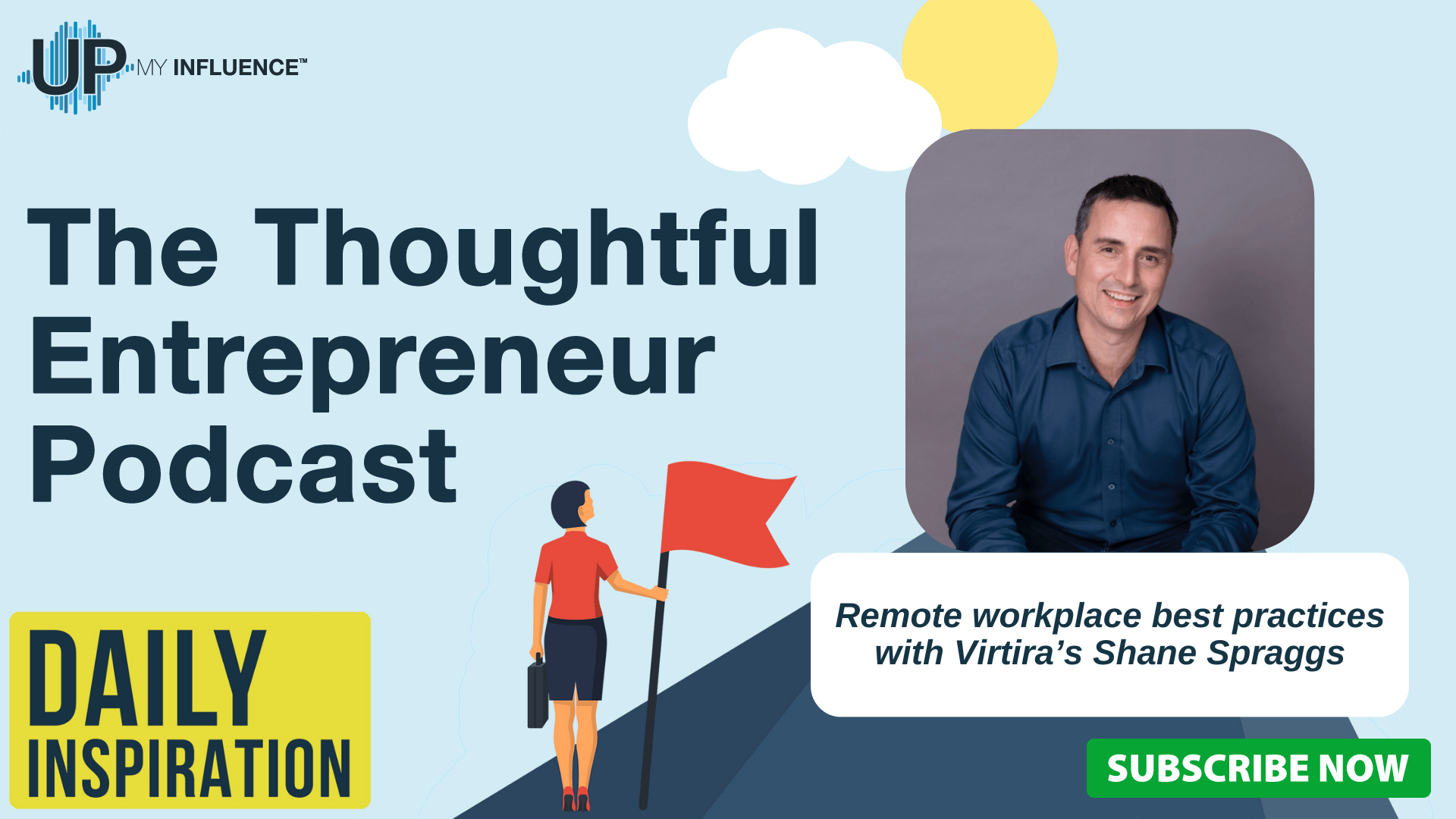THE THOUGHTFUL ENTREPRENEUR PODCAST
In this episode of the Thoughtful Entrepreneur, your host Josh Elledge speaks with the CEO of Virtira Consulting Inc., Shane Spraggs.

The world of work has undergone a seismic shift in the past few years. Remote work, once a perk, has become a necessity and, for many, a preferred mode of operation. Shane Spraggs is at the forefront of this transformation, leading Vertira, an operations and project management company that excels in the virtual space.
Shane's book, “The Power of Remote,” is not just a testament to the current trends but a guidebook for leaders looking to harness the potential of remote work. During our talk, Shane delved into the strategies and practices that make remote organizations survive and thrive.
One of the main topics he explored was the art of building high-performing teams in a virtual environment. Shane emphasized the importance of clear communication, robust processes, and the right tools to keep teams aligned and productive. He shared examples of how Vertira implements these practices to achieve remarkable results.
Shane discussed the various tools and platforms that facilitate collaboration and project management. He highlighted how Vertira leverages these technologies to streamline operations and maintain a competitive edge.
Key Points from the Episode:
- Shane Spraggs, CEO of Virtira
- Building high-performing organizations in the virtual workplace
- Operations and project management
- Remote work strategies
- Thriving in a virtual workplace
- The impact of remote work on organizations
- Strategies for success in a virtual environment
- The power of remote work
About Shane Spraggs:
Shane Spraggs is a notable figure in media and software start-ups with over 25 years of experience. He's significantly impacted Virtira as CEO, enhancing productivity for Fortune 100 clients through innovative systems and strategies, particularly for remote teams.
His problem-solving skills are highly acclaimed, especially in addressing complex organizational issues for sustainable success. Shane co-authored “The Power of Remote” in 2023, a best-seller providing insights on modern team management. He's also a seasoned speaker, adept in various formats, including podcasts and roundtable discussions.
Shane's expertise centers on enhancing remote work culture, strategic planning, and project management. Shane excels in creating productive environments for remote teams and preparing them for remote challenges.
His approach combines research with practical experience, offering tangible strategies for organizational improvement. He offers in-person and virtual sessions, sharing his knowledge and experience.
About Virtira Consulting Inc.:
Virtira specializes in enhancing remote work performance. Amid the rise of hybrid work environments, Virtira leverages its extensive experience in remote operations to assist companies in improving sales, accelerating growth, and boosting productivity, regardless of their physical office presence.
Emphasizing a ‘Work Without Boundaries' philosophy, Virtira rejects traditional office constraints, advocating for a barrier-free approach to work and creativity. This ethos is grounded in believing that great ideas and high performance aren't confined to office cubicles. With over a decade of running a highly productive remote organization, Virtira has successfully empowered teams at Fortune 500 companies, helping them achieve beyond their perceived limits.
Virtira's approach redefines conventional workspace notions, proving that significant achievements and innovation can originate from anywhere, unhindered by physical boundaries. Their impact is evident in the substantial improvements in the capabilities and output of the teams they've collaborated with.
Apply to be a Guest on The Thoughtful Entrepreneur:
https://go.upmyinfluence.com/podcast-guest
Links Mentioned in this Episode:
Want to learn more? Check out Virtira Consulting Inc. website at
Check out Virtira Consulting Inc. on LinkedIn at
https://www.linkedin.com/company/virtira/
Check out Shane Spraggs on LinkedIn at
https://www.linkedin.com/in/shane-spraggs/
Check out Shane Spraggs on Instagram Threads at
https://www.threads.net/@shanespraggs
More from UpMyInfluence:
We are actively booking guests for our The Thoughtful Entrepreneur. Schedule HERE.
Are you a 6-figure consultant? I’ve got high-level intros for you. Learn more here.
What is your #1 Lead Generation BLOCKER? Take my free quiz here.
Want to learn more about all the podcasts managed by UpMyInfluence? Opt in here.

